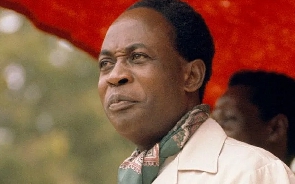Today in History, on 8th January 1950 Kwame Nkrumah launches Positive Action campaign, a series of protests and strikes to fight colonialism through nonviolence and education of the people.
The Positive Action day was a milestone in the freedom struggle against British Imperialism and colonial rule. This red-letter day signaled the continuation of the struggle and its entry into a decisive stage when the use of non-violent struggles like strikes, boycotts, peaceful demonstrations, and non-cooperation were employed by the workers and people of the then Gold Coast led by their vanguard party to fight and eventually expel the foreign colonialists.
The British assembled a selected commission of middle-class Africans, including all the Big Six except Nkrumah, to draft a new constitution that would give Ghana more self-government.
Dr. Kwame Nkrumah saw, even before the commission reported, that its recommendations would fall short of full dominion status, and began to organize a Positive Action campaign.
Nkrumah rather demanded a constituent assembly to write a constitution.
When the governor, Charles Arden-Clarke, would not commit to this, Nkrumah called for Positive Action, with the unions beginning a general strike to begin on 8th January 1950.
On 8th January 1950, Kwame Nkrumah declared Positive Action. It was a series of political protests, strikes and boycotts of European goods during the independence struggle; a political activism campaign.
This was after the British colonial government had refused to accept the popular demands of the people for self-government. The Positive Action campaign was launched to fight imperialism through non-violence and education of the people.
Kwame Nkrumah and other leaders were however arrested and imprisoned and the campaign ended with Nkrumah’s election and the transformation from British colony to independent nation, hence ending colonialism.
On April 7, 1960, in the shadow of the Sharpeville incident in South Africa, Nkrumah addressed the Positive Action Conference for Peace and Security in Africa.
“The beginning of the year 1960,” he said, “has seen the climax of ruthless and concerted outrages on the peace-loving people of our continent. The explosion of an atomic device in the Sahara by the French Government and the wanton massacre in the Union of South Africa of our brothers and sisters who were engaged in peaceful demonstrations against humiliating and repulsive laws of the South African Government are two eloquent events in this climax, a climax which is a sign post to the beginning of the end of foreign supremacy and domination in Africa.”
General News of Sunday, 8 January 2023
Source: ghanaianmuseum.com













